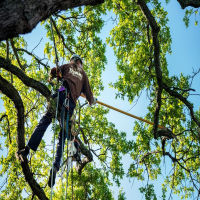
Toys are a source of fun, learning, and creativity for children. But along with joy, they must also ensure safety. Unsafe toys can harm children and cause serious injuries. To make sure that toys sold in India are safe and of good quality, the Bureau of Indian Standards (BIS) has made BIS certification mandatory for certain types of toys.
If you are a toy manufacturer, importer, or seller in India, it is important to understand whether you need BIS certification in India and how to get it. In this blog, we will explain everything you need to know in simple words.
What is BIS Certification?
BIS (Bureau of Indian Standards) is the national body of India that sets quality and safety standards for products. It ensures that products meet these standards through proper testing and certification.
BIS certification proves that a product is safe, reliable, and high in quality. Once certified, the product can carry the ISI mark, which is a symbol of trust for Indian consumers.
Is BIS Certification Required for Toys in India?
Yes, BIS certification is mandatory for toys sold in India. Whether the toys are manufactured in India or imported from other countries, they must be certified by BIS. This rule came into effect from January 1, 2021, and applies to all toys meant for children under the age of 14.
This move was taken by the Government of India to ensure the safety of children and stop the sale of cheap, harmful, and low-quality toys in the market.
Types of BIS Certification for Toys
There are two main types of BIS certification that apply to BIS certification for toys in India:
1. ISI Mark Registration in India
If the toys are manufactured in India, the manufacturer must get ISI mark registration from BIS. The ISI mark means that the product follows Indian safety standards.
To get the ISI mark, the toy must be tested in a BIS-approved lab and meet the quality and safety standards as per IS 9873 (Part 1): 2019 and IS 15644: 2006.
2. FMCS BIS Certification in India (Foreign Manufacturers Certification Scheme)
If the toys are imported from outside India, the foreign manufacturer must get FMCS BIS certification in India. This process is specially made for foreign manufacturers who want to sell their products in the Indian market.
FMCS involves factory inspection, product testing, and documentation. Once approved, the manufacturer is allowed to use the ISI mark on the toys they export to India.
BIS CRS Certification in India – Is It for Toys?
The BIS CRS (Compulsory Registration Scheme) is used mainly for electronic and IT products, like mobile phones, laptops, LED lights, etc. It is not applicable to toys. So, if you are a toy manufacturer or importer, you don’t need BIS CRS certification in India. Instead, focus on ISI mark or FMCS certification depending on your location.
Why is BIS Registration in India Important for Toys?
Here are some of the main reasons why BIS registration in India is important for toys:
- Child Safety: Toys certified by BIS are tested for safety and do not contain harmful materials.
- Quality Assurance: BIS ensures that the toys are durable, well-made, and meet Indian standards.
- Legal Requirement: Selling toys without BIS certification is illegal in India and can lead to penalties or confiscation of goods.
- Consumer Trust: Parents prefer to buy toys with the ISI mark, as it assures them of the product’s quality and safety.
Steps to Get BIS Certification for Toys
Here’s a simple step-by-step process for getting BIS certification for toys:
For Indian Manufacturers (ISI Mark Registration):
- Apply online on the BIS portal.
- Submit required documents, such as factory license, test report, and product details.
- Product testing in a BIS-approved lab.
- Inspection of the manufacturing unit by BIS officers.
- If all goes well, ISI mark license is granted.
For Foreign Manufacturers (FMCS BIS Certification):
- Apply under the FMCS scheme of BIS.
- Submit necessary documents such as product details, test reports, company profile, etc.
- BIS officials will inspect the foreign factory.
- Products must be tested in BIS-recognized labs.
- After approval, the license is issued with ISI mark permission.
Documents Required for BIS Certification for Toys
Here are the common documents needed:
- Business registration certificate
- Product test report from BIS-approved lab
- Layout of manufacturing process
- List of machinery and equipment
- Quality control manual
- Factory inspection report (for FMCS)
- Import-export code (for importers)
Common Challenges in BIS Certification
While the BIS certification process is clear, there can be some challenges, such as:
- Lack of awareness about the correct standard
- Delay in product testing or factory inspection
- Difficulty in understanding the documentation
- Language and legal issues for foreign manufacturers
This is why many toy businesses choose to hire professional BIS consultants who can manage the entire process smoothly.
Conclusion
If you are dealing in toys in India, getting BIS certification is not just a legal formality—it’s a promise of safety, quality, and trust. Whether you are manufacturing toys in India or importing them from other countries, make sure they are BIS certified.
To summarize:
- Yes, BIS certification is mandatory for toys.
- Indian manufacturers must get ISI mark registration in India.
- Foreign manufacturers must get FMCS BIS certification in India.
- BIS CRS certification in India does not apply to toys.
- BIS registration ensures product safety and builds consumer trust.
Get your toys BIS certified today and bring safe smiles to children everywhere!
Need Help with BIS Certification?
If you’re looking for help with BIS registration in India, including ISI mark registration or FMCS BIS certification, feel free to connect with our expert team. We offer complete support from documentation to final approval.
Source: https://www.francewow.com/is-bis-certification-required-for-toys-heres-what-you-need-to-know






